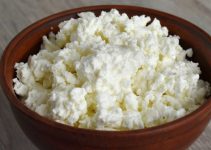Figs are fruits that have a large number of nutrients and health benefits.
In fact, figs reduce the risk of heart disease, promote healthy digestion, and help improve blood sugar levels.
Below you can find more information about figs: their nutritional benefits, health properties, downsides, and ways to incorporate them into your diet.
Fig Nutrition
A small fig (about 40 grams) contains:
- Protein: 0 grams
- Fiber: 1 gram
- Calories: 30
- Carbohydrates: 8 grams
- Fat: 0 grams
- Riboflavin: 2% of the Daily Value (DV)
- Magnesium: 2% of the DV
- Copper: 3% of the DV
- Vitamin K: 2% of the DV
- Thiamine: 2% of the DV
- Vitamin B6: 3% of the DV
Fresh figs are ideal for consumption as snacks or as accompaniments to meals since they have many nutrients and few calories.
As we can see, figs contain copper, a mineral that helps produce energy, accelerates the metabolic process, and helps form cells and tissues. It is also a neurotransmitter.
Also, figs are a rich source of vitamin B6, which is beneficial for creating new proteins in the body and helps brain health.
However, it is not recommended to eat dried figs as they contain many sugar and calories.
Health Benefits of Figs

Below you can find the health benefits that the consumption of figs provides.
1. Promote Digestive Health
First, figs are used as a home remedy to help digestive problems like constipation.
This is so because it contains fiber, which improves the general functioning of the digestive system.
According to an animal study, the consumption of figs helps move food through the digestive tract. This is used to treat constipation and other symptoms such as ulcerative colitis.
On the other hand, a study on 150 people with irritable bowel syndrome with constipation showed that the consumption of 4 dried figs (45 grams) twice a day helps to reduce symptoms such as pain, constipation, and abdominal swelling.
In addition, a study of 80 people found that consuming 300 grams (10 ounces) of fig paste every day for eight weeks can reduce constipation.
2. May Improve Vascular and Heart Health
According to a study in rodents, fig extract helps lower blood pressure. This was the case in rats with normal blood pressure and in rats with high blood pressure levels.
Likewise, other animal studies showed that consuming fig leaf extract reduces cholesterol and triglyceride levels in the blood.
However, a study was conducted on 83 people with high levels of bad cholesterol (HDL). Researchers found that the daily consumption of figs did not produce a significant change in their blood fat levels.
3. May Help Manage Blood Sugar Levels
According to a 1998 study on 10 patients with type 1 diabetes, consuming fig leaf tea helps reduce insulin needs by 12%.
In turn, a recent study revealed that drinks with high doses of fig have a lower glycemic index, which helps improve blood sugar levels.
If you have blood sugar problems, it is not advisable to consume dried figs since they have many sugars.
4. Potential Anticancer Properties
A study found that consuming fig leaves and natural latex from the fig plant helps reduce tumor activity. In this way, it prevents colon cancer, cervical cancer, breast cancer, and liver cancer.
Beyond the above, more studies in humans are still needed to have solid evidence on the antitumor effect of figs.
5. May Promote Healthy Skin
According to a study conducted on 45 children with dermatitis, applying cream made from fig extract twice a week is more effective than hydrocortisone cream in treating dermatitis.
In addition, an animal study found that fig extract helps reduce collagen breakdown, promotes antioxidant effects on the skin, and improves the appearance of wrinkles.
Side effects
Although figs are very beneficial, they can also have side effects.
First, while they are good for treating constipation, they can also cause digestive problems such as diarrhea.
In addition, it can interfere with the proper functioning of blood-thinning medications because it contains vitamin K.
On the other hand, some people may be allergic to figs. In general, it happens with people who are also allergic to pollen.
How to add figs to your diet
You can incorporate figs into your diet in different ways:
- Dried: they are more effective than fresh figs in treating constipation, but they have high levels of sugar, so it is recommended to consume moderately.
- Fresh: they can be consumed as snacks, as desserts and even in salads. It can also be consumed in jams.
- Fig leaves: can be used to wrap meals containing meat or rice.
- Fig leaf tea: It is made with dried leaves. You can do it yourself or buy it directly in the store.
In summary, figs have many nutrients and medicinal benefits, so it is advisable to include them in the daily diet.





